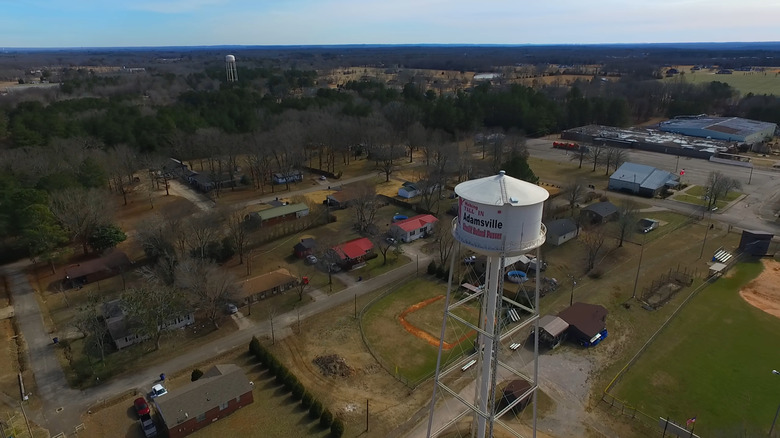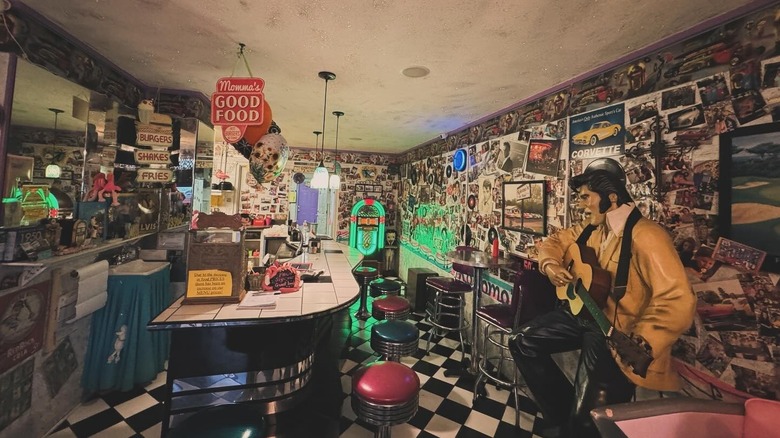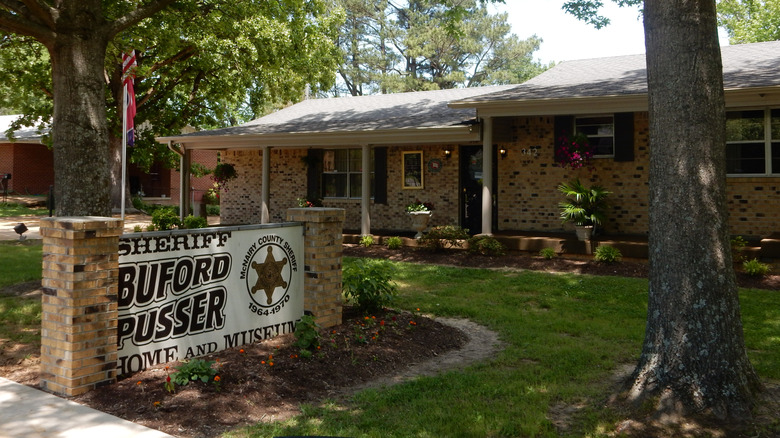Tennessee's 'Biggest Little Town' Is A Crossroads Haven With A Low Cost Of Living And Famed Museum
Small communities with big character are littered around Tennessee. Take, for example, Trade, the state's oldest and easternmost community, rich in Appalachian culture. There's also Cosby, a town hidden in the Smokies, known for its orchards heavy with fruit and genuine charm. These places, modest in size yet rich in heritage, highlight how Tennessee's towns preserve unique stories and experiences. In Hardin and McNairy Counties, there's a small community that calls itself "The Biggest Little Town in Tennessee." Named Adamsville, the town is a crossroads haven that's affordable to live in and houses a distinguished museum.
Just over 2,600 people live in Adamsville, but its location at the crossroads of Highway 64 and Highway 22 gives it an outsized role. Memphis is the nearest major city, about 100 miles west, and is easily reached by traveling east–west on Highway 64. Other destinations such as Nashville, Jackson, and Florence, Alabama, are also within easy reach. All are less than two and a half hours away by car, making Adamsville a convenient base for exploring the region.
This connectivity traces back to its origins as a stagecoach stop run by George G. Adams in the 1840s. Today, the crossroads identity remains, giving Adamsville both a sense of continuity and a role as a modern-day link between small-town life and the wider world.
Adamsville cost of living and hospitality
Living in Adamsville means stretching a dollar further than in most corners of the country. In 2025, the town's overall cost of living was calculated by Salary.com at 10% below the national norm, thanks largely to remarkably low housing costs. Homes here carry a median value of $190,500, which, though higher than the McNairy County average, remains well under state and national benchmarks.
The average single person can expect to spend about $1,715 each month on essentials, while a family of four can manage on around $3,994. Groceries and utilities also trend lower than national levels, reducing everyday pressures for households. Compared with cities such as San Francisco or New York, the difference is striking, with costs in Adamsville up to 110% lower. This economic trait, along with Tennessee's lack of a state income tax, makes the town an appealing place to live.
Those visiting Adamsville can enjoy small-town hospitality at its hotels and restaurants. The Deerfield Inn serves as the primary lodging option, offering clean rooms, affordable rates, and comforts like cable television and jacuzzi suites. Local eats that radiate charm make the town. Kokomo's 50's Diner has a retro flair with its décor and offers hearty burgers. Additionally, there's The Sawmeal Restaurant, which is known for generous portions of Southern fare, live music, and a popular Sunday buffet. Hope's Place offers laid-back, diner-style meals in a cozy setting, with classic cheeseburgers, Southern-style slug burgers, and other comfort favorites.
Visiting Buford Pusser Home & Museum
America has plenty of one-of-a-kind museums, just like the American Museum of Magic, the country's largest magic museum, found in Michigan, as well as the National Atomic Testing Museum, found in Las Vegas. In Adamsville, visitors can find a museum dedicated to an iconic sheriff. Sheriff Buford Pusser, whose reputation as a fearless lawman turned him into a national figure, is beloved by the town. He's known for his big stick approach to tackling crime.
Pusser became sheriff of McNairy County in 1964 and quickly gained attention for refusing bribes and confronting organized crime along the Tennessee-Mississippi border. He destroyed dozens of illegal alcohol stills, faced repeated assassination attempts, and endured the devastating loss of his wife during an ambush. His story, retold in books, films, and a television series, "Walking Tall," elevated him to folk hero status.
Located at 342 Pusser Street, the museum is housed in his family's residence. Today, the museum remains furnished much as it was in the 1970s. Guests walk through rooms frozen in time, from the sheriff's bedroom to family spaces filled with photographs and mementos. Downstairs exhibits showcase his police work, weapons, vehicles, and the dangers of battling the notorious State Line Mob. Admission fees are modest at $10 for adults and $3 for children. Visitors often remark on the authenticity of the setting, which conveys the sense that Pusser might step through the door at any moment.


